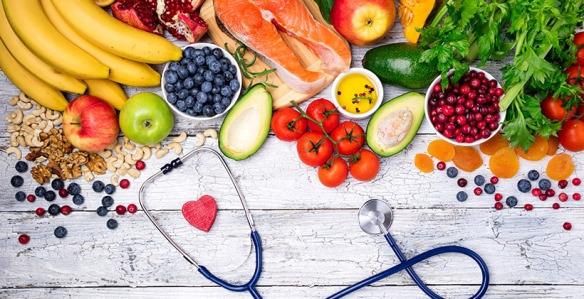Nutrition Tips for Seniors

You probably know that you can find the healthiest foods around the perimeter of your local grocery store. By shopping the edges, nutrition experts tell us, you can focus your diet on vegetables and fruits, along with low-fat dairy products and lean meats.
But, as you age, you may find it necessary to adjust and refine general nutrition guidelines to fit your individual needs. To ensure that you get the most from the foods and beverages you consume every day, consider the following nutrition tips for seniors.
Drink Despite Lack of Thirst
One of the most important steps you can take each day for your overall health is drinking plenty of fluids. As people get older, their sense of thirst may decrease even as medications and medical conditions increase the need for fluids. Dangerous dehydration can result.
While pure water is best, liquids including herbal tea, coffee (decaf is best), milk and even popsicles count. If you have problems with your kidneys or heart, check with your doctor for specific amounts you should drink.
Focus on Vital Nutrients
People of all ages need a balanced diet with plenty of colorful fruits and vegetables to provide valuable micronutrients. For seniors, certain dietary elements become even more important.
- People need more of this critical element as they age to help preserve bone integrity. The World Health Organization recommends that people over 50 consume a minimum of 1,200 milligrams of calcium daily. Get yours from dairy products, fortified orange juice or enriched, non-dairy milks. Kale, turnips and other greens also can provide healthy helpings of calcium. For example, one eight-ounce glass of orange juice can provide up to 350 milligrams of calcium.
- Omega-3 fatty acids.These healthy fats, found in walnuts, canola oil, flaxseed and certain fish, can help reduce inflammation, which can contribute to serious medical conditions like arthritis, cancer and heart disease. Try to eat omega-3-rich foods twice each week, and ask your doctor if you should consider a supplement.
- A protein deficiency, which is increasingly common among older adults, can cause fatigue, bruising and dental issues. In addition, insufficient protein can impair wound healing and reduce appetite. Experts advise that seniors try to eat about 45 grams per day for women and 60 grams for men. For example, one egg or one ounce of cheddar cheese can provide up to six grams of protein each, two tablespoons of peanut butter can provide up to eight grams of protein, and seven ounces of Greek yogurt can provide up to 20 grams of protein.
As you seek to increase levels of some nutrients in your diet, you may consider decreasing others. For people with hypertension, limiting sodium represents an important step to control the disease. To cut down, limit frozen and processed foods, along with salty restaurant dishes.
Change at Your Own Pace
If you feel that you need to improve your diet, consider making changes gradually. Whether you resolve to drink extra water, cut down on salt, or incorporate more fruits and vegetables into your daily meal plans, you can feel good that you’re taking positive steps for your health. If you need additional advice or assistance, Edgehill’s dining staff members can recommend many healthy and delicious selections.
Executive Director, Christopher Barstein, shared a healthy summer salad recipe with us. While some find salads a boring way to manage diet and heart health, this sweet and crisp summer salad is sure to satisfy.